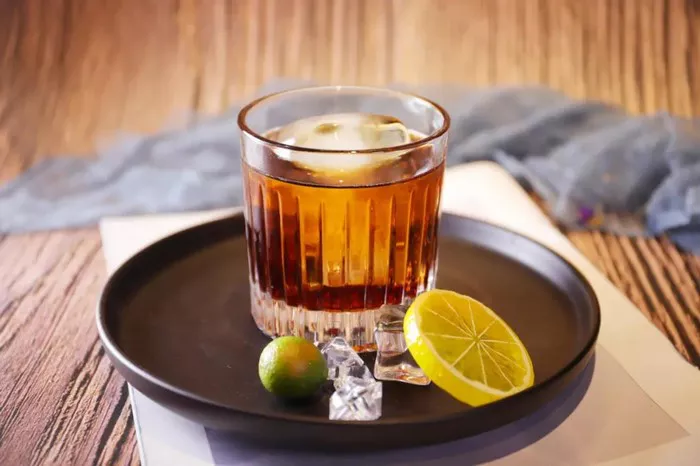When exploring the world of libations, the debate often arises: What is the difference between a cocktail and a mixed drink? While the terms are sometimes used interchangeably, they actually represent distinct categories within the realm of beverages. Understanding these differences involves delving into their historical origins, the specific components they entail, and the evolving nuances that distinguish one from the other.
Historical Origins and Evolution
To comprehend the divergence between cocktails and mixed drinks, one must journey back to their origins. The term “cocktail” finds its roots in the early 19th century in the United States. A cocktail, during that era, was defined as a potent mixture of spirits, sugar, water, and bitters. The word itself was believed to have emerged from the practice of using rooster feathers as garnishes or the idea of a horse’s tail when mixed drinks were stirred with a swizzle stick.
On the other hand, mixed drinks have a broader historical context. The concept of mixing various ingredients, including spirits, juices, sodas, and other flavorings, dates back centuries. It encompasses a wider range of concoctions that don’t adhere strictly to the traditional cocktail definition. Mixed drinks often include spirit-based beverages but can also incorporate non-alcoholic elements.
Composition and Ingredients
One of the fundamental distinctions between a cocktail and a mixed drink lies in their composition and the specific ingredients used. A cocktail, as per its historical definition, involves a specific combination of spirits, sugar, water, and bitters. These ingredients are meticulously measured and combined to create a balanced and flavorful concoction. Classic examples like the Old Fashioned or the Manhattan exemplify this precise blend, showcasing the artistry and craft behind the cocktail.
Conversely, mixed drinks have a more expansive canvas. They encompass a broader spectrum of beverages where the combinations of ingredients are more flexible. Mixed drinks incorporate spirits as a base but also allow for a diverse array of mixers, juices, sodas, and even other alcoholic or non-alcoholic additives. Margaritas, Long Island Iced Teas, and Screwdrivers fall into this category, showcasing a blend of spirits with juices, sodas, or other flavorings.
Artistry and Craftsmanship
The distinction between cocktails and mixed drinks also extends to the level of artistry and craftsmanship involved in their preparation. Cocktails, with their precise recipes and meticulous blending of ingredients, require a high level of skill and attention to detail from bartenders. The balance of flavors and the artful presentation are central tenets in creating a well-crafted cocktail. Bartenders often undergo extensive training to master the techniques and nuances behind classic cocktail recipes.
In contrast, mixed drinks, while still requiring expertise and creativity, offer more room for experimentation. Bartenders have greater flexibility in mixing various ingredients, allowing them to invent new combinations and flavors. The focus may lean more towards creating refreshing or innovative drinks rather than adhering strictly to traditional recipes, offering a broader spectrum for creativity and adaptation.
Cultural Significance and Perception
Both cocktails and mixed drinks hold cultural significance in the world of beverages, albeit with varying connotations. Cocktails are often associated with sophistication, elegance, and a certain level of exclusivity. They carry a sense of heritage and tradition, owing to their historical roots and the craftsmanship involved in their preparation. Cocktails have been immortalized in literature, cinema, and popular culture as symbols of refinement and style.
On the other hand, mixed drinks are perceived as more casual and versatile. They cater to a broader audience due to their varied flavors and the ability to accommodate different preferences. Mixed drinks are often favored in social settings, parties, and casual gatherings, where their diverse range appeals to a wider demographic. Their adaptability and accessibility contribute to their popularity among diverse consumer groups.
Evolution of Terminology and Blurring Boundaries
The distinction between cocktails and mixed drinks has become somewhat blurred over time. As the beverage landscape evolves and trends emerge, the traditional definitions have undergone modifications. Modern mixology has witnessed the fusion of cocktail techniques with the diverse ingredient combinations of mixed drinks, leading to a convergence of the two categories.
Contemporary bartenders and mixologists have embraced a more inclusive approach, incorporating elements from both cocktails and mixed drinks to create innovative concoctions. This fusion has given rise to hybrid drinks that blend the craftsmanship of cocktails with the versatility of mixed drinks,challenging the traditional boundaries and definitions.
Conclusion
In summary, the difference between a cocktail and a mixed drink lies in their historical origins, specific composition, level of craftsmanship, cultural significance, and evolving perceptions. Cocktails, with their precise recipes and emphasis on spirits, sugar, water, and bitters, embody a heritage of sophistication and refined craftsmanship. Mixed drinks, on the other hand, encompass a broader spectrum of beverages that allow for more flexibility in ingredient combinations, catering to diverse tastes and preferences.
However, as the world of mixology continues to evolve, the lines between cocktails and mixed drinks have become increasingly blurred. Modern bartenders and mixologists are pushing boundaries, creating innovative libations that combine the best of both worlds. Ultimately, whether one prefers the timeless elegance of a classic cocktail or the versatile appeal of a mixed drink, both categories offer a rich tapestry of flavors and experiences within the world of beverages.


